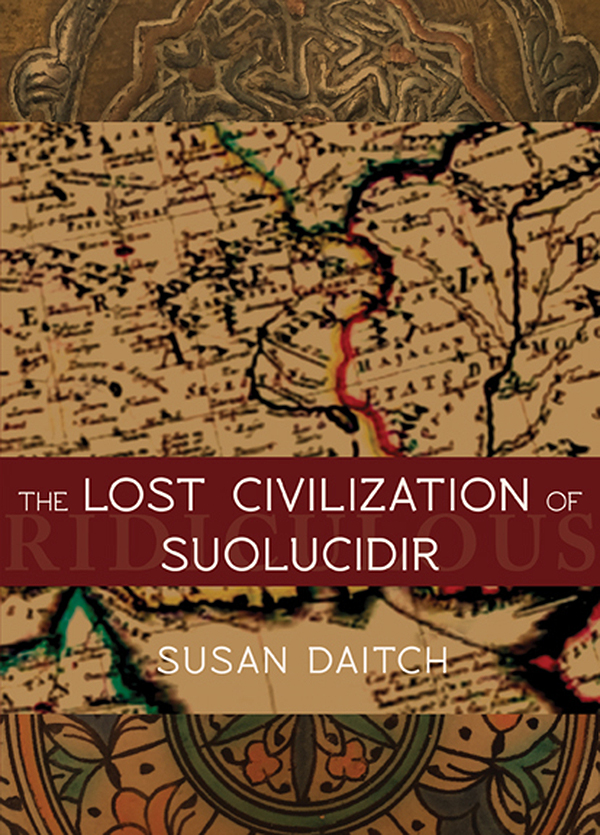
The Lost Civilization of Suolucidir
کتاب های مرتبط
- اطلاعات
- نقد و بررسی
- دیدگاه کاربران
نقد و بررسی

Starred review from April 25, 2016
Daitch’s fantastically fun novel has shades of Umberto Eco and Paul Auster and is brainy, escapist fiction at its best. Structured like a Russian nesting doll, the book conceals several overlapping tales centered on the search for the mythical lost city of Suolucidir. The novel begins with grad student Ariel Bokser’s present-day search for the city, located somewhere in modern day Iran. The book then shifts to the heart of its story, the so-called Nieumacher papers, an inheritance from Ariel’s father (a consulting mineralogist for a mining company) that relates the narrative of Sidonie and Bruno Nieumacher’s quest for Suolucidir, beginning in 1936. The Nieumachers are husband and wife; he’s a rare-book forger and she’s a law student, and they are fleeing the West as much as they are searching East for Suolucidir. Setting off under the guidance of Bruno’s former Berlin professor, now a black market profiteer, the duo brave adversity to find the lost city, dodging British agents and Russian spies. The book then shifts further back in time to the story of Hilliard and Congreaves, two mismatched British explorers who met at the Possum Club, an explorer society, and who set off in 1914 in search of fabled fortune and instead encounter their fate. Daitch has constructed an intricate, absorbing narrative. The novel is like a Scheherazade tale, never quite giving the reader time or reason to pause. What exactly is Suolucidir? Lost city of the Hebrew tribes? A stand-in for colonialism’s heart of darkness? Wisely, the MacGuffin remains elusive. As one character says, “Invisible cities sometimes leave no trace of themselves. Who knows what cities lay under our feet?” Perhaps Suolucidir is real, and still out there, awaiting discovery.

April 15, 2016
An Umberto Eco-lite literary mystery spanning continents and centuries. A globe-straddling scientist with an eye for loot: check. An arcane trove that just may (or may not) force a revision of the way we think about things: check. This isn't your grandpa's Indiana Jones, though. Daitch (Paper Conspiracies, 2011, etc.) presents an intrepid protagonist of shifting identity--not a bad strategy to take when nefarious people are after the same thing he is, one made more urgent when the newspaper prints his obituary, leaving it to him to decide "whether the risks of reinventing myself are life shattering or way more inconsequential than you think." Smart, though a bit of a schmo, working with a trove of ancient documents that have come to him as if by fate, he begins to reconstruct the ancient civilization of Suolucidir--and that, in turn, draws in other stories by other seekers, a whole swirl of yarns, some shaggy dog ("Antonov believes that Suolucidir was a center for ancient pornography") and some more or less straightforward ("Though Ryder wasn't ordinarily a superstitious man, the plates' proximity to the beheaded skeleton made him leery of keeping them in his possession"). That the whole thing is a sendup is evident when you turn the word of the ancient place around, and in the end, that effort seems curious; the story plays straight just as well as it does with its postmodern flourishes. Slow to unfold, it has the self-satisfied air of the postmodern as well, though the broad range of allusions and references is entertaining to behold--on one page Krazy Kat, on another Josef Stalin, Winston Churchill, and the shah of Iran. And you have to give points to any yarn with a character named Shuki Fingers Feigen. An inventive concoction but a middling book; though without the grating ineptitude of Dan Brown, also without the charm of a Stanislaw Lem or Jorge Luis Borges.
COPYRIGHT(2016) Kirkus Reviews, ALL RIGHTS RESERVED.

























دیدگاه کاربران